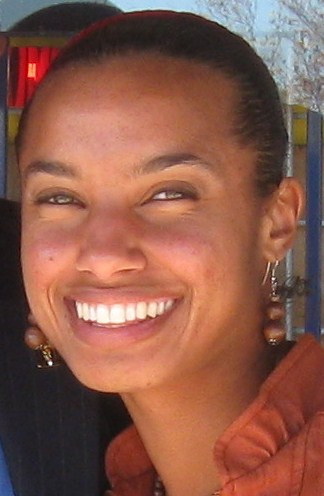|
Dominica McBride 
Youth Global Harmony Association (YGHA), President, USA BIO Dr. Dominica McBride obtained her Ph.D. in Counseling Psychology, with a specialization in consultation. She has managed and assisted in national and international program evaluations. From working with rural citizens in Tanzania to decrease the prevalence of HIV/AIDS to urban Native Americans in Arizona in the area of substance abuse, Dr. McBride has been involved in a diverse array of programming. She recently completed her dissertation, titled, Moving towards holistic equity: A process of developing a culturally responsive family health program. She has also worked clinically with a wide variety of clientele, from underserved children and families to the “worried well”, providing them with therapeutic services. -------------------------------------------------- MOVING TOWARDS HOLISTIC EQUITY: A PROCESS OF DEVELOPING A CULTURALLY RESPONSIVE FAMILY HEALTH PROGRAM By Dominica Francoise McBride ABSTRACT Health disparities for African Americans have plagued this nation for centuries, from the times of African enslavement to the present age of technological proliferation. one reason for these lingering differences is the lack of cultural responsiveness in health programs. The present study arose in response to this dearth and conceptualized a detailed process for developing a culturally responsive family health program (FHP). Using Sociocultural Theory as a guide, this research focused on an African American community in a Southwestern metropolitan area. This theory requires the study of a community’s culture, including its context and history. A review of the literature revealed three predominant cultural-historical factors in African American culture and history, including: religion/spirituality, racial socialization, and extended family. This research considered how each could be incorporated into a FHP. It also ascertained how history has shaped the present context of families living in the targeted area and how current contextual factors can be addressed by a FHP. The study utilized predominately qualitative methods, completing 10 focus groups (with African American parents/guardians and healthcare professionals who work with African American families) and eight interviews (with local community leaders). Surveys of participants’ perceptions of the current relevance of the aforementioned cultural-historical factors were completed by the 54 parents/guardians and 17 professionals. Participants identified ways in which these factors could be integrated into a FHP. Methods that religion/spirituality could be incorporated centered on the application of spiritual values and using the religious institution as a conduit for outreach. Participants suggested racial socialization be integrated on all social levels, from empowering youth to uniting the greater multicultural community. They suggested using extended family as role models, resources, and pseudo therapists. They also advocated for the building and uniting of the extended family unit. Further, participants identified assets of the target community that can be used to accomplish program goals. They then delineated possible barriers to the program, which included stigma around mental problems and a lack of resources. Finally, they identified single parenthood as a factor also in need of confrontation. Amalgamating these suggestions would, theoretically, be conducive to a culturally responsive FHP. ----------------------------------------------------
Youth Global Harmony Association (YGHA)
By Dominica McBride, YGHA President
Mission: To promote peace and harmony through the edification of youth (3-35 years of age) internationally on global issues related to individual/intrinsic peace and harmony, interpersonal harmony (including intercultural and interfaith dynamics), community development and accord, global relations, environment/human harmony, and policy/social justice. Objective: To provide educational and edifying programs for youth that promote the above-stated target areas and lead to holistic (physical, mental, spiritual) world peace. Recruitment strategies: - Social networking
- Existing members target interested associates
- Cyber networking/advertisement
- Advertise to cyber associates
- Create a facebook and Twitter page
- Create a facebook group
- Create a program website
- Presentations at local colleges and universities
Initial project: Interfaith and intercultural program for youth. Steps in process: 1. Obtain funding 2. Construct a project team consisting of specialists in: - curriculum development
- program development
- program evaluation
- youth programming
- peace and harmony programming
- education
- recruitment
3. Create a curriculum and pilot the program. 4. Publish the results January 22, 2010 -------------------------------------------------
Up
|